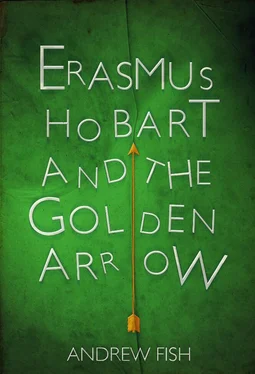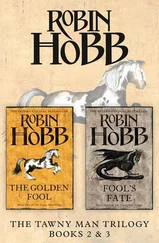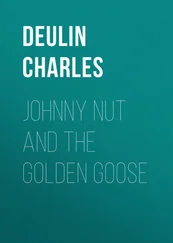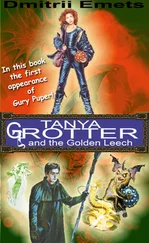The root of the problem was that Prince John was an unreasonable man: to him, being robbed didn’t constitute a tax deductible expense. Because it was much harder to extract money from a merchant when they’d already lost it, he had decided on a policy of punishing those who were insufficiently careful with their or rather, as the Prince saw it, his money. Such merchants were, in future, to be regarded as de facto thieves.
Unfortunately, this didn’t have the desired effect. Convictions for theft increased vastly, but most of the convicted were those who had been robbed. Since this provided little money for King Richard’s war chest, John was forced to think again.
His next brainwave was vastly more effective. Instead of blaming the victims of crime, he decided, instead, to blame those officials whose lands were havens for cutthroats and whose thoroughfares were most often used to waylay wealthy travellers.
Hunting outlaws was proving to be an infuriating pastime: even with the Sheriff, Gisburne himself and ten men-at-arms combing the forest, the demands of Prince John on behalf of his brother were proving intractable. The outlaws knew the forest well – too well – and seemed to be able to melt away into the trees at will. Gisburne was all for letting them stay in their damned forest, but he knew that, though his and the Sheriff’s heads would be of as little use to Richard as the merchant’s hands, that wouldn’t stop John from appropriating them if they were less than totally successful.
The knight steered his frightened horse with his knees and turned it southward down yet another leaf-covered pathway. A low branch hung across the path a few yards ahead and he had just ducked under this when the air was rent by an ear-splitting crash, something like a thunderclap. His horse, startled by the sound, bolted and the branch caught the top of his helmet and threw him from his saddle.
He landed on his back in the pathway. For a few moments, he just lay there, catching his breath. As the sound of his horse receded, the world seemed strangely peaceful: he could hear birdsong, scurrying animals in the undergrowth and the chattering of the squirrels in the trees. He could have lain, listening to the calming sounds for the rest of the day, but something, whether it was his sense of duty or a strong suspicion that the squirrels were laughing at him, prevented him. He sat up and looked around him for his helmet. As he did so he became aware of a much louder noise, the trampling of leaves and twigs by an animal that was larger and considerably less careful where it put its feet.
Worried there might be a wolf approaching, Gisburne pulled himself painfully to his feet, picked up his dented helmet and drew his sword from his scabbard. He looked around him, trying to work out from which direction the sound was coming. Presently he saw the undergrowth parting to reveal a man, dressed in brown-coloured peasant attire and carrying a bow. Gisburne’s fear dissipated, leaving a sense of embarrassment which then rapidly turned to rage. He threw down his helmet and charged at the man, roaring and with his sword upraised.
Erasmus, taking a single look at the red-faced, armoured man, turned and fled through the forest, stumbling back in the direction of his time machine. This obviously wasn’t the kind of pursuer who would take his time to stop and scrape off horse manure – he doubted that he would stop to wipe his entrails from his sword. As the teacher ran, he removed his keys from his pouch and glanced down to make sure the right one was to hand so he could open the time machine as soon as he arrived. This was beginning to become a habit, he mused. Perhaps he should code the keys with some kind of bump pattern.
Gisburne charged blindly after the man. He smashed through the thicket so loudly that he masked the sounds of his quarry, but the odd glimpse of brown guided him on. After a few minutes, he emerged into a clearing and was startled to find himself faced with some kind of wooden privy. He stopped and lowered his sword: it seemed a strange place for such an object and the naturally suspicious knight suspected some kind of trap. Tentatively, he extended his weapon and gave the privy an experimental prod. Nothing happened. No net fell from the trees and no arrow thudded into the forest floor next to his foot. Reassured, he decided it was safe to approach.
The moment he took a step, a storm of leaves whirled up from the floor. He put up an arm to shield his face, then staggered back under the onslaught and fell over a tree root, landing heavily in a pile of leaves. There was another thunderclap and then there was silence. Gisburne raised his head groggily from the floor. The privy was gone. For a moment he stared in amazement at the empty clearing, then a shower of acorns bounced off his head and he blacked out.
The now-familiar whine of travelling inside the time machine faded away and Erasmus took a moment to catch his breath. So far, he reflected, life in the past seemed to comprise of running from people with swords. He checked the readout on his control board; he hadn’t come very far in time or space this time – probably only a couple of years forward and a few miles south. It was probably a good place to start: his pursuer had seemed to be of the right era, anyway.
Although he hadn’t had much chance to calibrate the machine, Erasmus was beginning to get an intuitive feel for the controls. It was, he considered, a reasonable assumption that he wasn’t that far from Nottingham. He was also beginning to get an intuitive feel for the nature of history, so he thought it prudent to check what was outside before he ventured out again. He swung the periscope around to give him a view of his surroundings. Everything seemed quiet enough: he was in an enclosed area with high, stone walls and a number of low, wooden buildings. At a guess, he figured it was probably the outer bailey of a castle or the inside of a fort. The low levels of activity led him to believe he had landed in peacetime, when most of the activity would be carrying on in whatever settlement lay outside of the walls.
There was nothing to tell him exactly where he was, but it was a fair chance that this was Nottingham Castle and the state of repair appeared to indicate it was during the castle’s heyday, so he was probably in the twelfth or thirteenth century. He turned the periscope through a slow circle, making sure that nobody was hiding behind the privy with a sword in hand, then, satisfied he was safe, he stowed the controls, unlocked the door and stepped out into mediaeval England.
The time was probably somewhere after four in the afternoon by Erasmus’ reckoning as he locked the privy door and buried the key in his pouch. The sun was beginning to move towards the west and glinting off the whitewashed stone of the surrounding walls. Erasmus stepped out into the centre of the yard so he could get a better look at his surroundings. Above him towered the castle keep, an imposing structure whose presence positively oppressed the low hovels below it.
Despite the warmth of the sun, several of the wooden outbuildings had smoke pouring through holes in their roofs, indicating that fires were blazing within them. Erasmus felt like the last tourist of the afternoon, just getting a chance to look around after the swarms of foreign students had left and before the custodian came to usher him out of the building.
He strolled casually around the bailey, walking a lazy circuit of the keep and drinking in the atmosphere which, as he had expected, contained a strong perfume of horse manure, given a musky edge by the drifting smoke. He passed the gatehouse, keeping a wary eye out for soldiers – his presence inside the castle might be somewhat hard to explain to the military mind – and continued on past the stables and the small, wooden chapel which butted up against the stone walls. Eventually, he found himself back more or less where he had started: there was his time machine and there, before it, was a familiar looking man.
Читать дальше











